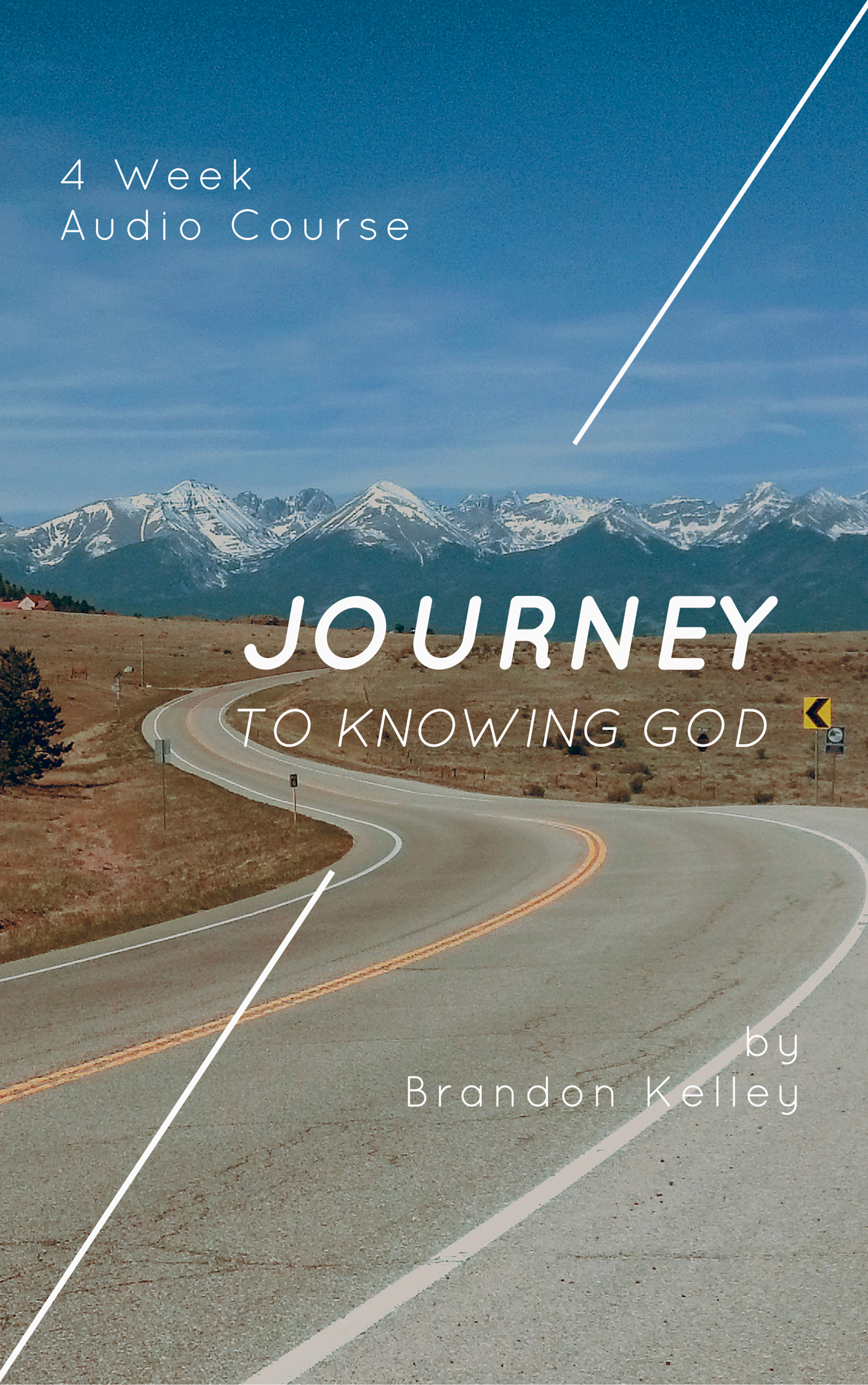I’d like to open up a few cans of worms that many of us aren’t even aware exist: modern eugenics, technology, and virtual reality. In a matter of years, they will create a new norm in society and the Church must begin thinking them through now. We must carefully and thoughtfully give direction to our culture as we embark on a new era of scientific discovery and technological accomplishment.
Shall we begin?
Modern Eugenics, Technology, Virtual Reality, and the Tower of Babel
Modern Eugenics

I am fascinated by science because, through it, we discover the beauty and complexity of God’s creation. Recently, I began reading The Language of God: A Scientist Presents Evidence for Belief by Francis Collins. This is significant for this discussion because of Collins’ work as a scientist. He was the leader of the Human Genome Project which was an international scientific research project that led to the discovery of the language of DNA. This was and is, arguably, one of the most significant scientific breakthroughs in history.
But what it has opened the door for is, what I and many others believe, a modern day return to Eugenics. If you’ve heard of Eugenics before, you’ve probably heard them associated with the Nazis. But Eugenics didn’t originate with them. It was actually in the United States and funded by many major corporations like the Carnegie Institution, Rockefeller Foundation, and the Harriman railroad fortune [source].
What is Eugenics? “Eugenics is a set of beliefs and practices that aims at improving the genetic quality of the human population” [source]. Originally, it was seen as a social philosophy where countries would encourage fit and healthy individuals to marry and reproduce with other fit and healthy individuals. You can see this thinking especially in upper-class families of the 19th and 20th centuries, and I’m sure, even today.
“They have good breeding,” is a phrase you’ve surely heard in movies depicting the culture of the upper class. And even today, with in vitro fertilization, there is a hint of this thinking as well. Does the male providing the sperm have a good frame, a good mind, a good _____? While this belief is pompous, it doesn’t exactly do harm to others beyond the obvious discrimination and prejudices it breeds in the hearts of those who hold to it.
But then it was taken much further. Enter: marriage prohibitions, forced sterilizations, and, eventually, gas chambers.
Today, we are able to accomplish the goal of Eugenics through Genome Editing. This “is a type of genetic engineering in which DNA is inserted, deleted or replaced in the genome of a living organism using engineered nucleases, or ‘molecular scissors.'”
This brings to mind some questions I believe we must ponder and begin working through.
- What are the benefits of Genome Editing?
- Do the benefits outweigh the risks?
- For example, what happens when a couple discovers their child will get cancer or some other disease in the future but doesn’t have the money to perform Genome Editing? Will they choose to abort the child with the justification of not wanting the child to suffer?
- How could the human desire and quest for power take over this science, particularly through politics?
- In countries with government-run healthcare, could Genome Editing become required to limit costs in the future?
- To what extent, are humans, especially children, things we can simply tinker with and modify?
Surely, there are more questions that will come to mind, but if you’d like to delve into this subject a bit more, I encourage you to read this article and to read this article.
Technology: Self-Driving Vehicles
The technology is here for self-driving cars and trucks (even semi-trucks) to be popularized. And with it, a whole host of concerns and questions should be flooding our minds.
In an effort to limit or even eliminate human error on the road, self-driving cars offer an attractive benefit. Imagine being able to get from point A to point B without ever being in an accident. Yeah, it’s a pipe dream for most of us, because we don’t buy it. But let’s just suppose that self-driving cars could, in fact, lower the amount of wrecks on the road drastically (let’s say 90%), would it be worth it?
On a surface level, the science that would make this possible would enable the self-driving vehicles to communicate with one another to ensure the safety of them all. But we all know that computers aren’t perfect. And we all should know that computers are created by humans who also aren’t perfect.
Consider this: let’s say there’s a malfunction in your self-driving vehicle that causes you to head off the road. In front and to the right of you is a tree and in front and to the left of you is a family of pedestrians on the sidewalk. If your car hits the tree, you, the passenger will be put at risk and maybe even experience drastic harm. If your car hits the family of pedestrians, the damage done to your vehicle will be far less than what the tree would cause. And, as a result, you would be safer. But…
What decision does your self-driving vehicle make?
Make no mistake, a programmer would have to make this decision before you ever saw that vehicle on the road.
This also brings to mind some questions I believe we must ponder and begin working through.
- How will these self-driving vehicles make decisions in scenarios like the one above?
- Will different makes and models be programmed differently – to either save you or pedestrians?
- If so, what one would you choose? You or the pedestrian?
- Will these programming decisions even be made public?
- It would likely take a governmental law mandating self-driving vehicles be the only cars and trucks we can have on the road, otherwise, we’d be mixing human operated with self-driving vehicles on the same road and the technology would certainly be limited. If that happened, would you give up your freedom of making your own driving decisions?
- What will this do for the trucking industry which employs 3.5 million people? [source]
Want to see the car brands that are working on this technology? Find them here. Pittsburgh has some on the road already. Read more here.
Technology: Virtual Reality
The next best thing in entertainment is here. Movies will eventually no longer be on the silver screen, they will be on your VR headset. Even more, they will be captured and experienced through virtual reality suits. Imagine being able to feel the movie, feel the game, or feel another world not limited by the law of nature.
The future of VR is particularly problematic in so many ways. Just consider the obvious and eventual evolution of the pornography industry. Consider the lie of freedom people will be sold that they can escape to, not a screen, but an entire other world.
The concerns of the impact of video games on kids and adults alike will be escalated dramatically. Now, you’re not just shooting or fighting with a gaming controller, but you’re doing so with your body, literally. You’ll feel the punch, you’ll feel (obviously in a limited way) getting shot. You’ll feel and experience it all as if it is really happening.
And then what? You escape the virtual reality world and are expected to be the same person in reality that you were before you encountered VR?
We thought our human interactions were dwindling now with social media. Just wait until VR is in every home.
Friends, look around. Welcome to a world that is not enough anymore.
This brings to mind some questions I believe we must ponder and begin working through.
- What will VR do to the wellness of human beings?
- How will VR alter cultural ethics in a negative way?
- What will sin look like in the future?
- How many marriages will be destroyed by VR?
- How many people will rob themselves of true sexual intimacy with their spouse?
- How will VR impact violent crimes in the real world?
- How will VR impact human psychology?
There is plenty of content around VR. The bulk is geared around the benefits of it and the problems of developing the technology or not tripping over your children. We’re clearly missing the conversation that must be had around VR. It’s coming. How will we think through the ethics of it?
The Tower of Babel
As we become more and more in control of our physical bodies through Genome Editing, as we seek to preserve our lives through self-driving cars, and as we seek to escape this world and experience a holistic high that drugs can’t provide, what will really become of us?
As I’ve been thinking through all this, I’m reminded of the Tower of Babel. I’m reminded of the quest of humankind to reach up to the heavens and take control of our own existence. I’m reminded of the desire of humankind to use God for our own interests. I’m reminded of our foundational temptation: to be like God.
The way forward will continue to be Christ and His good news. The way forward will continue to be pointing to the One who satisfies our deepest desires. The way forward will be after God as it has always been.
But we need not ignore the billboards along the road that are attracting people to take the next exit or to never get on the road after Him at all.
Church, we must be the voice in the wilderness pointing people to Jesus. We must carefully and thoughtfully infuse faith into our culture. We must be what Jesus called us: the salt of the earth, the light of the world.

